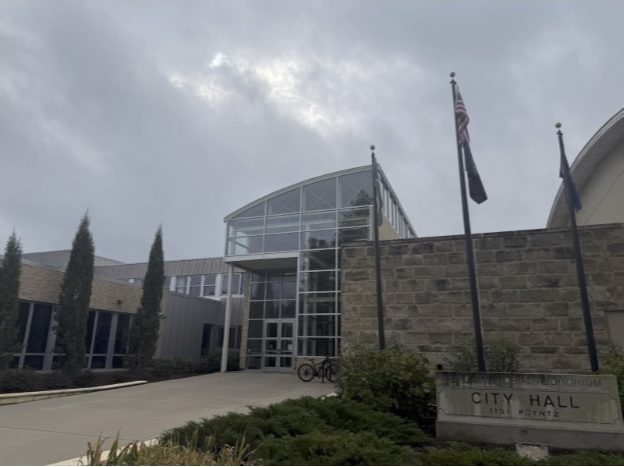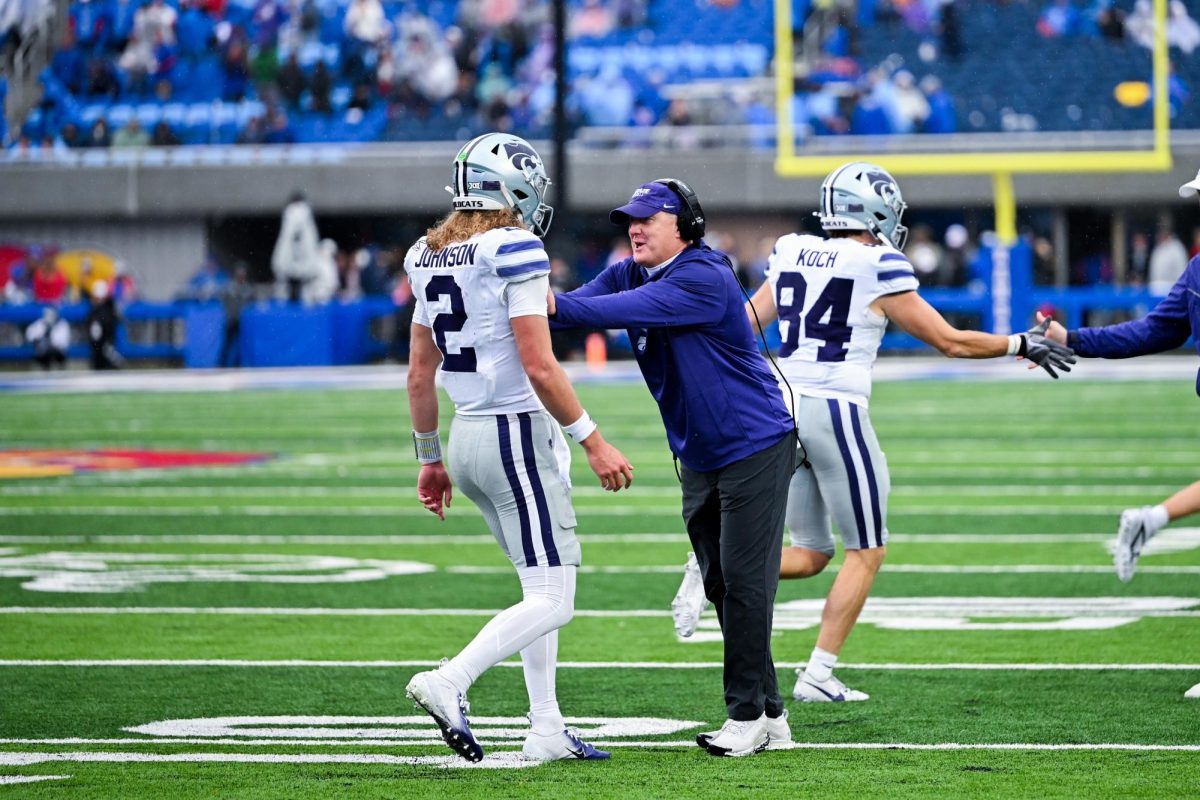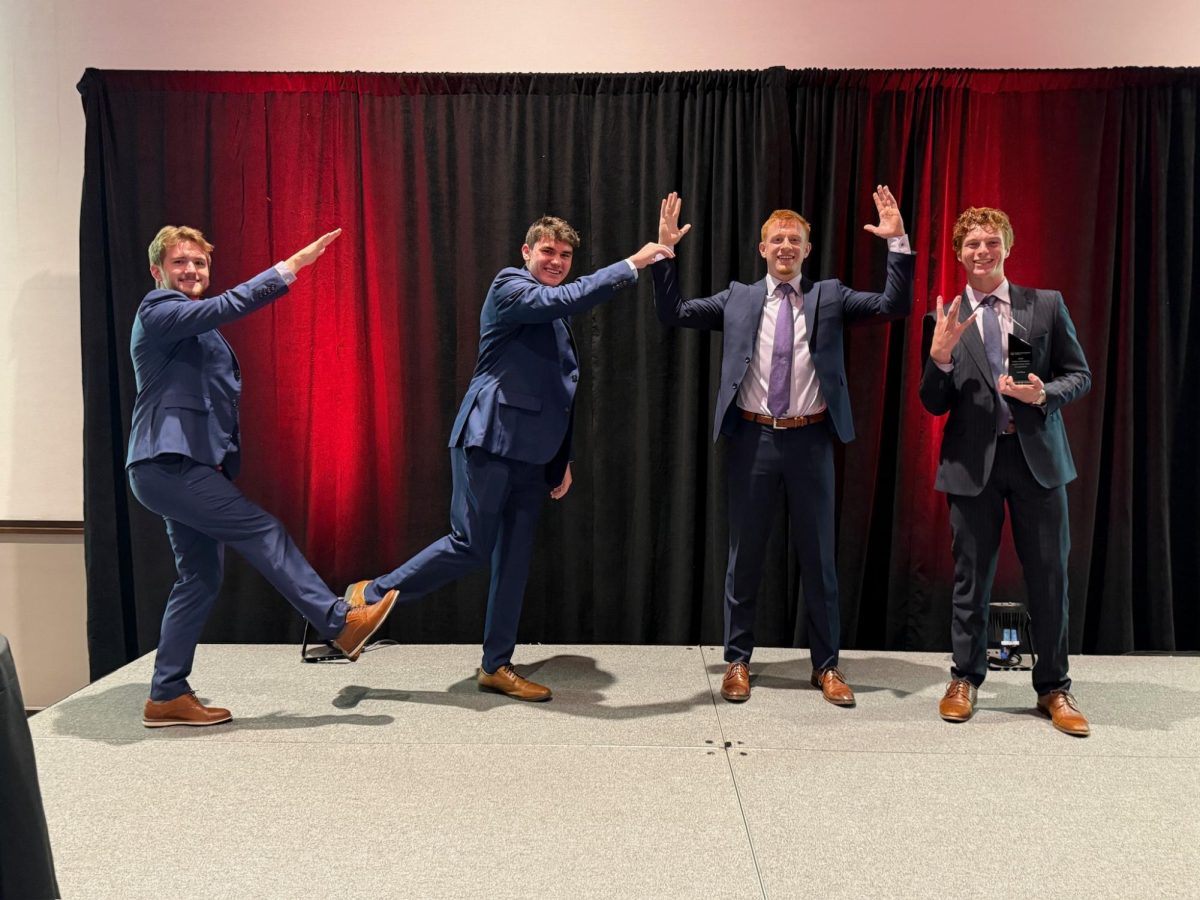Four sophomores in Kansas State’s College of Business Administration took first place in the Collins Aerospace 2024 Case Competition, a regional supply chain competition, on Oct. 18 in Cedar Rapids, Iowa.
The team consisted of finance major Logan Forssberg, professional and strategic selling major Quinton Pfaff, accounting major Caden Parker and finance and marketing major Chase Ruda.
College of Business Administration professor Brandon Savage advised the group. He said it is uncommon for a team of underclassmen to win a supply chain case competition.
“A lot of teams will try to have two juniors and two seniors, just so you’ve got some consistency because then you can have those juniors come back the next year,” Savage said. “They already know what it takes to win. We’ve tried to do that in the past too, but it’s pretty rare to have sophomores on the team. I can’t say I’ve never seen it, but I would say it’s very rare.”
Savage said the students volunteered after he opened the opportunity in his Introduction to Operations and Supply Chain Management course.
“I wasn’t finding anyone in our higher-level classes,” Savage said. “And so in my intro class, I said, ‘Well, here’s this case competition. If any of you guys are interested, let me know,’ and I tried to paint a good picture … They came in only eight weeks into an intro class for supply chain, and none of the four are supply chain majors.”
Every team member was a Menard Family Scholar — a business leadership development program for freshmen in the College of Business Administration.
Forssberg said the program allowed the team to skip the “meeting each other phase.”
“We all knew each other’s strengths and weaknesses and how we worked together,” Forssberg said. “The Menard Family Scholars program put us in several different business classes together, so we’ve seen each other in group projects before.”
The competing teams were tasked with addressing a supply chain disruption at Collins Aerospace, an aerospace technology and defense company. They were judged not only on their ability to solve the immediate problem of continuing production but also on whether their long-term strategy aligned with Collins Aerospace’s values, according to a K-State news release.
Ruda said the competition taught the team to “think on their feet.”
“Coming into this competition, neither me or any of my partners really had any supply chain experience, so there was obviously a bit of a learning curve,” Ruda said. “We had to learn how to conquer obstacles that got in our way and solve new problems that we had not seen before.”
A surprise twist in the competition, where a major supplier could no longer complete a contract, forced teams to quickly change their strategies.
Forssberg thought the twist was a great challenge and reflected the reality of business.
“Having just two hours to change a good amount of our case study provided a great challenge and opportunity,” Forssberg said. “Being a finance major, aspects of it are constantly changing, and we have to adapt quickly. This competition helped me simulate what it would be like to get last-minute information and change your strategy.”
Pfaff said he valued the opportunity to network with prospective employers and peers from other universities.
“To hear what different students had to offer and how different college experiences can lead to different parts,” Pfaff said. “[It is] important to network and find those connections to build on LinkedIn and other platforms for different future career paths.”
The win marks the first time any K-State team has won a supply chain case competition.
Parker said the win was “the supply chain underdog story of the year.”
“With all four of us being sophomores and none of us having any background in supply chain, it was really an enjoyable experience, to be able to work through that with everybody, learn new things, and go down that path,” Parker said.






















































































































